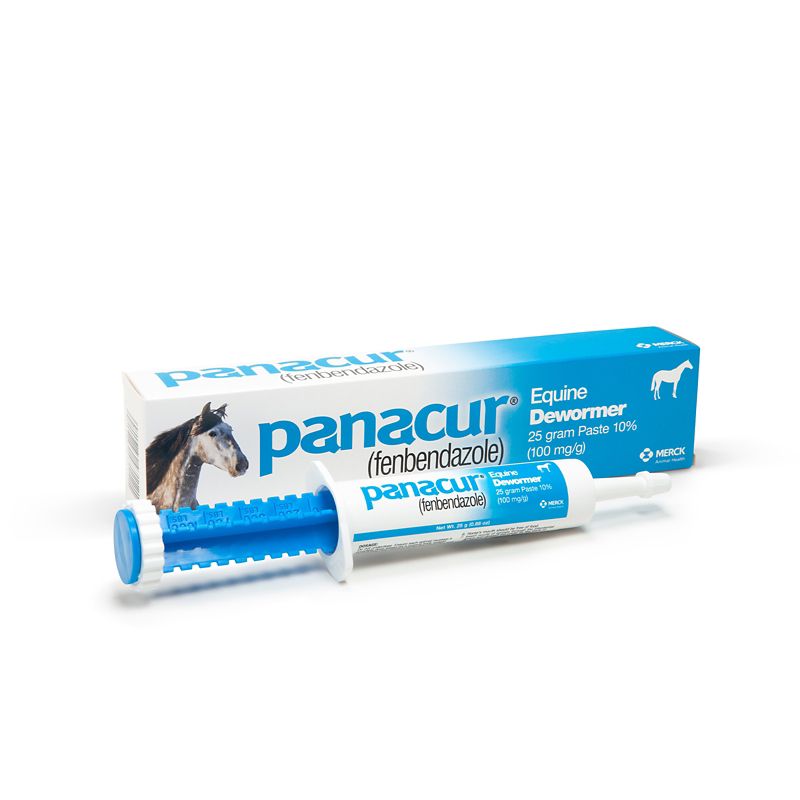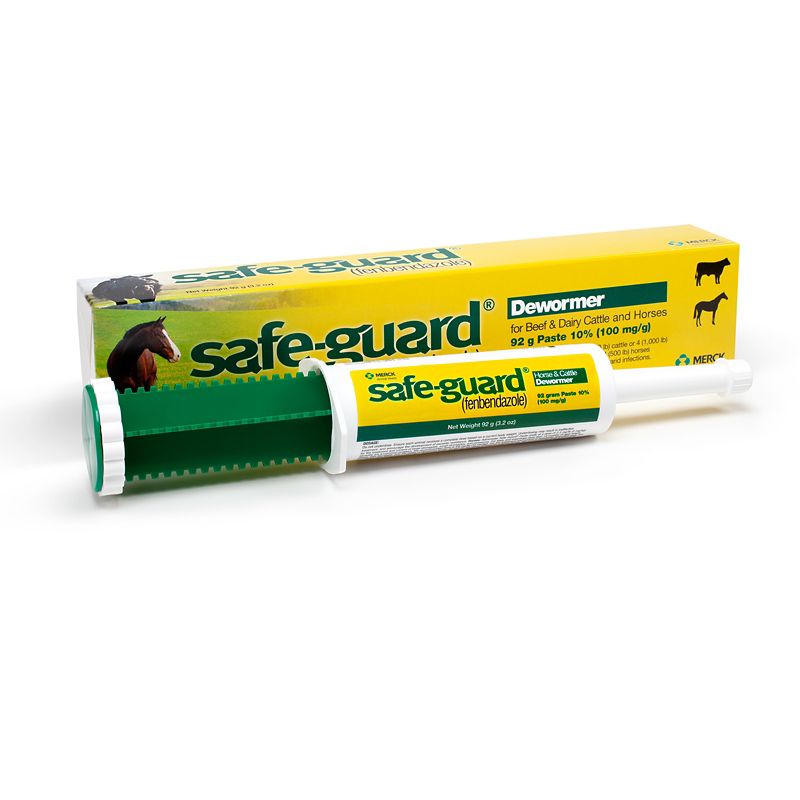Can Roundwoms Hurt My Horse?
Horse Roundworms go by the scientific name of Parascaris equorum and are also known as ascarids. Roundworms are a type of internal horse parasite that can infect the intestines of horses and other equine animals, such as zebras, donkeys, and mules. These worms can cause a variety of health problems in horses, including weight loss, and diarrhea.
Roundworms tend to infect younger horses more than older horses. A 2009 article published in the Journal of Equine Veterinary Science found that the occurrence of horse roundworms in young horses (< 2 years of age) was significantly higher than in adult horses. Perhaps this could be because foals and yearlings don’t seem too picky about where or what they eat and therefore tend to dine in areas where the number of roundworm eggs may be plentiful.
Roundworms have also been found to interfere with the absorption of nutrients from a horse’s diet, leading to poor growth and development in young horses. A 2013 study published in the Journal of Veterinary Medicine and Research examined the impact of roundworms on horses’ health and performance. The study found that horses with heavy roundworm infestations had decreased weight gain and reduced exercise tolerance compared to those with fewer roundworms.
Where DId the First Horse Roundworm Come From?
The Equine Roundworm is a common parasite that is found in horses worldwide. It is believed to have originated in the digestive tracts of wild equine species, such as zebras and wild horses. In fact, evidence of roundworm infections has been found in the remains of horses that lived thousands of years ago.
It also appears that horses begin to develop immunity to roundworm eggs and larvae at about 18 months. The aging process seems to help prevent the eggs and larvae from becoming adult roundworms though the roundworms still cause significant damage as they migrate through a horse’s internal organs.
How Does My Horse Become Infected With Roundworms?
Horses are exposed to roundworms primarily from other horses. Infected horses shed roundworm eggs in their feces, which contaminate the environment and are consumed by the same or other horses. Specifically, horse roundworms are transmitted to other horses by ingesting contaminated feed, water or contacting contaminated soil. They can also be transmitted from mother to foal during pregnancy or nursing.
Lots of Eggs and Tougher Than You Think
The roundworm is a prolific egg layer. Each female can lay from 100,000 to 200,000 eggs each day. The eggs pass out of the horse in the feces and can withstand significant variations in temperature. Infective roundworm larvae develop within the eggs, which are triple coated, allowing them to remain dormant in the soil for 10+ years.
How Do I Know if My Horse Has Roundworms?
On properties where roundworms are common, most foals become infected soon after birth. As a result, most worms mature when the foals are approximately 4 to 5 months old. Diagnosing roundworms is done by finding eggs in your horse's feces. Because eggs are to small too see with the naked eye, a simple, inexpensive fecal egg test (FEC) can be conducted. FEC testing involves identifying the number of the most common types of parasites (i.e., small strongyles/bloodworms and ascarids/roundworms) that have infected your horse. FEC testing may be accomplished inexpensively by using mail-in equine FEC tests available by clicking here.
Growing up to be an Adult Equine Roundworm?
Roundworms begin their journey to adulthood as eggs and mature into larvae, eventually becoming adult worms. Following is an overview of the roundworm’s complete life cycle (click on the diagram to enlarge it):
- Mature roundworm eggs are eaten and hatch inside a horse when swallowed.
- The roundworm larvae pass through the horse’s intestinal wall and into its liver.
- The blood from the liver carries the larvae to the horse’s lungs, where the roundworm larvae move into the horse’s airways.
- The roundworm larvae are then coughed up by the horse and swallowed to become adults in the horse’s small intestine.
- The adult female roundworms can lay around 200,000 eggs each day in the horse’s small intestine.
- The roundworm eggs are passed in the horse’s manure into the environment and develop when conditions are favorable for survival.
- A horse then eats the mature eggs and the roundworm life cycle repeats.
The roundworm's life cycle takes between 2 and 3 months to complete. Male roundworms can grow to 10 inches, while female roundworms can grow to nearly 20 inches. Roundworms are usually described as resembling cooked spaghetti with adults looking like earthworms, except they are generally white to light-grayish blue in color.
Are Roundworms Harmful to my Horse?
Younger horses infected by roundworms may show a lack of energy, weight loss, or even colic. Heavy roundworm infections can cause obstructions or even rupture your horse's intestines.
The roundworm’s journey through your horse is unique in that this parasite visits your horse’s small intestine not once but twice. Once at the beginning and the second time at the end of their migration.
After your horse consumes some infected roundworm eggs, the roundworm larva penetrates the lining of your horse’s intestinal tract for the first time to begin a migration that involves wreaking havoc on your horse’s internal organs. The roundworm eggs then travel to your horse’s liver, where the larvae eat their way around your horse’s liver for several days.
You Take my Breath Away.
The roundworm larvae continue their migration by heading to your horse’s lungs, again eating their way around the lung tissue. Because lung tissue heals by scarring, there will be less functional lung for your horse to use and the damage to these sensitive structures is permanent. Horses whose lungs have been damaged by roundworms/ascarids larval migration may have to breathe harder and faster to meet their oxygen demands as they develop and are asked to perform. Such damage predisposes foals to pneumonia and may result in bleeds to the lung in athletic horses.
Summer Colds?
The roundworms continue their journey by burrowing from the blood side of your horse’s lung into the air side. This part of the migration can cause enough irritation to trigger your horse to cough up the roundworms to the back of their throat and re-swallow them. Heavy infections can mimic summer cold symptoms such as excessive coughing, nasal discharge and watery eyes.
As the roundworms mature to adults they swim upstream in the small intestine for their second and final visit to your horse’s small intestine. Roundworms in your horse’s intestines can rob it of nutrition, causing a young horse to appear malnourished (rough hair coat and pot-bellied), while large numbers of these worms can also cause impaction colic in young horses further complicated by intestinal rupture.
What Can I Do About Roundworms?
Keeping your horse free of harmful parasites is a critical step in keeping your horse healthy. Internal parasites, like roundworms left undetected, can wreak havoc on your horse’s internal organs. Roundworms in your horse can lead to an ulcerated digestive system, recurrent colic, and damaged organs. Treating a horse for roundworms depends on the severity of the infestation and the overall health of the horse.
Following are some general guidelines for treating a horse for roundworms:
-
Perform an equine fecal egg count (FEC) testing within 8 week of birth. FEC testing involves diagnosing the extent of your horse’s internal parasitic infection by identifying the number of the most common types of parasites (i.e., small strongyles/bloodworms and ascarids/roundworms) that have infected your horse. FEC testing can be accomplished by using mail-in equine FEC tests available here.
- Depending on your FEC testing results, you may need to treat your horse with an equine anthelmintic (dewormer). Select a dewormer that is effective for the type of parasites revealed by your equine FEC test results. Administering a dewormer consists of the dosage, and application of the dewormer as per the label's instructions. The most common treatment for roundworms in horses is to administer a broad-spectrum benzimidazole anthelmintic like fenbendazole which can be found in equine dewormer brands such as Panacur and Safeguard. For your convenience, I have included links to purchase these brands at the end of this blog or click here. These medications are usually given orally as a paste, and they work by killing the adult roundworms in the horse's intestine. It is important to monitor your horse during and after treatment to ensure that the treatment is effective and that your horse is recovering well. If your horse shows any signs of discomfort or illness, consult with a veterinarian as soon as possible. Treatment with a deworming medication may be started when foals are about 8 weeks old.
- Practicing good barn and turnout hygiene will help prevent the spread of roundworms. This includes ongoing cleaning and disinfecting stalls, dry lots and pastures, disposing of manure properly, and rotating pastures, if possible, to guard against reinfection.
- Implement a comprehensive equine parasite control program specifically designed for your horse by combining testing, treatment, and ongoing monitoring of your horse and its environment. This program should identify, control and manage your horse’s internal parasite or worm burden by targeting your horse’s particular internal parasites as well as preventing their reoccurrence. Additional information about equine parasite programs can be found here.
- Inform a veterinarian: It is important to inform your horse’s veterinarian about any parasite control program undertaken so they are aware when diagnosing or treating your horse for other reasons.
Following are a couple of affiliate links for different brands of a single dose of fenbendazole oral paste dewormer for horses:

Panacur Fenbendazole Single Dose Paste Wormer [More] Price: $9.95
Sale: $9.95
|
DISCLOSURE: Some of the links above are affiliate links, meaning at no additional cost to you, I may earn a commission if you click through and make a qualifying purchase.

